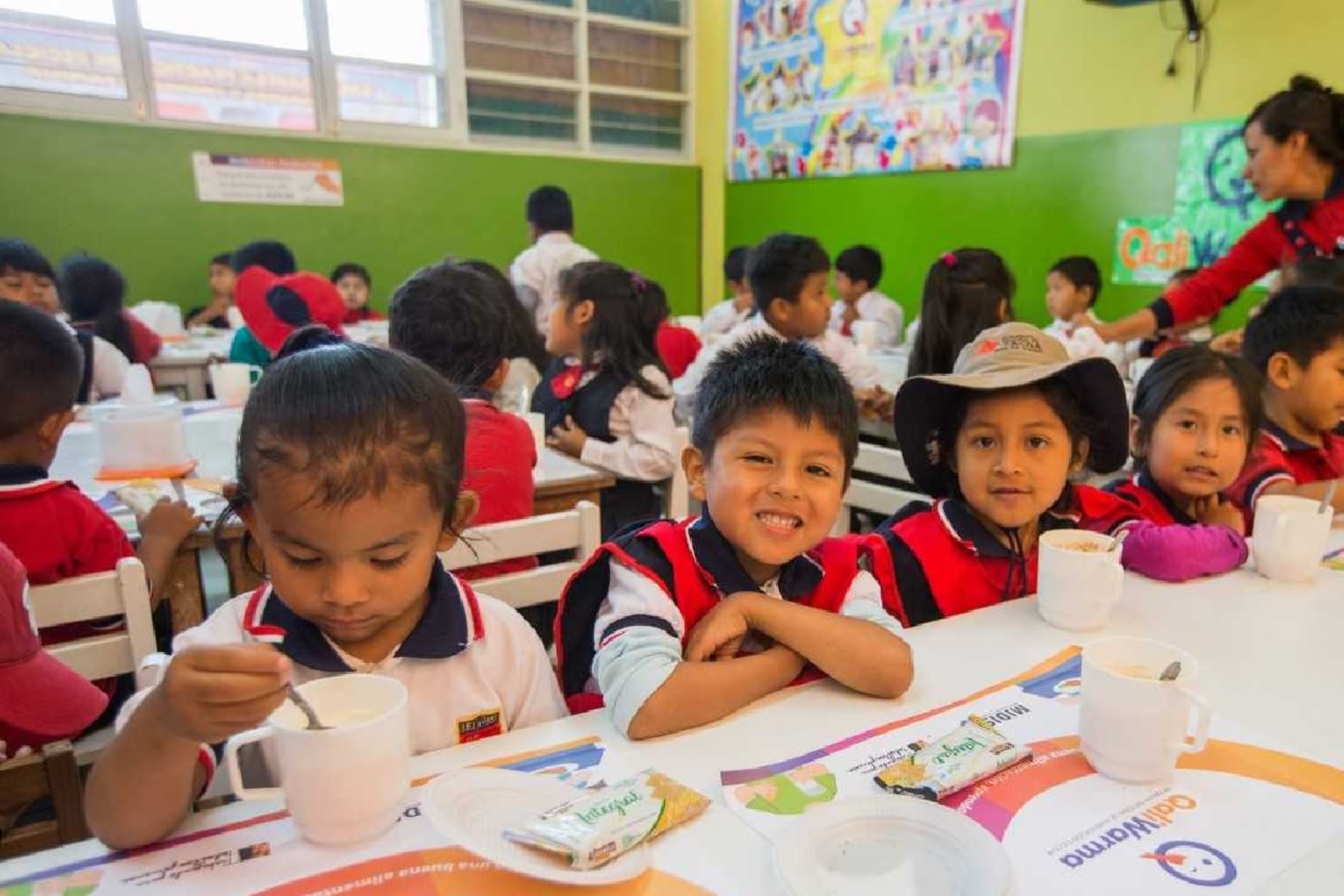Start your search here

Qali Warma served 187,945 students from 3,749 educational institutions in the Junín region in 2022
The schoolchildren attended in Chanchamayo, Chupaca, Concepción, Huancayo, Jauja, Junín Satipo, Tarma and Yauli-La Oroya, correspond to the levels of initial and primary education, as well as secondary education of schools located in indigenous populations of the Amazon, and also those with full school day (JEC) and forms of diversified attention.
The Qali Warma National School Food Program guaranteed quality food care for 187,945 schoolchildren from 3,749 educational institutions in the nine provinces of the Junín region until the last day of the 2022 school year.
The schoolchildren attended in Chanchamayo, Chupaca, Concepción, Huancayo, Jauja, Junín Satipo, Tarma and Yauli-La Oroya, correspond to the levels of initial and primary education, as well as secondary education of schools located in indigenous populations of the Amazon, and also those with full school day (JEC) and forms of diversified attention (residences, alternation and tutorials).
The social program of the Ministry of Development and Social Inclusion (Midis) detailed that 6,890.3 tons of nutritious, quality products, free of octagons, were distributed, including vegetable oil, brown sugar, noodles, quinoa, extruded wheat flour, flour extruded broad bean, banana flour, oat flakes, oat flakes with kiwicha, whole evaporated milk, lentils, split peas, canned chicken or hen meat
In addition, among the products delivered are fortified rice (with 10 nutrients such as vitamin A, B1, B3, B6, B9, B12, D, E and minerals such as iron and zinc) and canned fish in vegetable oil, which has a great nutritional value as it contains iron that allows the proper functioning of the brain and muscles, omega 3 that is involved in the formation of the brain and organs.
He specified that the local management monitors of the program supervise the delivery of food in the educational institutions carried out by the school feeding committees (CAE) to the parents.
In addition, there is, on various occasions, the support of local authorities that exercise social surveillance, in order to promote a quality food service.
They also carry out training on healthy eating, nutritional contribution of the products and provide feedback on the importance of the co-management model, which involves the articulated and cooperative participation of directors, teachers and parents.
The distribution of food made by suppliers in educational institutions is monitored thanks to the mobile application that uses the Qali Warma program, through which food delivery can be viewed in real time.
Finally, the head of the Junín Territorial Unit of Qali Warma, Raúl Aliaga Contreras, said that food is insured to attend classes from the first day, having awarded 100% in the first call for the 2023 Purchasing Process.
Source: Andean

